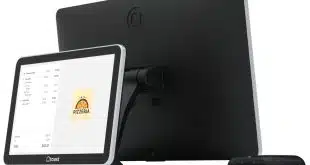Security Notes
If Apple Inc. attached a rolled-up dog leash to its iPhone 6, a majority of dog owners would abandon their old leash and phone-walk their dog—just because it is Apple. So no matter what pundits write about the new Apple Pay mobile-payments service, it will fly high.
Conceptually Apple Pay is a re-do, but so what? Apple’s legendary iPod made its splash in a market already swamped with MP3 players. And the touchscreen was already a commodity when Apple polished the user experience. Tokenization, near-field communication, a secure element, fingerprint ID—they too have been around for some time now. But now they have been adopted by Apple, the undisputed king of the user experience.
So instead of dedicating my column to hair-splitting the differences between Apple Pay and the many other wallets that are limping along in the marketplace, I will instead offer a different perspective: the future.
The payment card industry has dominated payments for the last 50 years. Much as minted gold coins were viewed as innovation-proof until paper money came along, so do many today regard the payment card as durable far into the future, ignoring the excitement of a new money-religion: digital currency
Yes, Bitcoin is staggering, and its alternatives, like BitMint, are too small to make a dent—yet. But as none other than Bill Gates, as well as lesser visionaries, have noted: digital money has arrived, and is about to change payment as we know it. With that perspective, Apple Pay may be regarded as a swan song, the last hurrah of the payment card industry.
After all, Apple Pay shoehorns itself into payments as yet another party in the clearing and settlement cycle. And Apple says, “Pay!” to the issuers, which in turn will kick the can to the consumer or the merchant. Interchange fees are too high as it is! While Apple will help the merchant with its security burden, it itself will become a hacking target. Apple promises to erase the transactional data it processes. Really? After Snowden, very few trust such promises.
But all that does not matter much because Apple Pay could be a great precursor to something else, something we might call Apple eCash Pay. Digital money regards the phone as its natural wallet. Digital money can be tethered to a restricted disposition, which is exactly what loyalty dollars are.
With Apple eCash Pay, it would be the phone that would securely hold the digital cash (perhaps trusting the iPhone 6 secure element). It would be the phone that would manage coupons, rewards points, and all forms of loyalty currencies, and route them for use according to expiration dates and other factors. It would be the phone that would accept a $10 discount offer—expiring in 2 hours and issued by a store that captured your geolocation and realized your proximity to its outlet.
Yes, the phone is the wallet. Not the Johnny-come-lately Europay-MasterCard-Visa (EMV) card. Apple Pay will be the training tool for the public and merchants alike. With Apple’s design prowess, its screens are bound to be slick, the protocol as easy as can be. When digital money blossoms, it will fit right in.
Some regard biometrics as Apple’s salient attraction. It is cool indeed. But it involves giving away a personal feature you can never change. Once the digital digest of your fingerprint is hacked, you will need a plastic surgeon to replace it. By contrast, PINs are readily replaced when hacked.
In its essence, the payment card industry is based on payor and payee mutually identifying themselves. But it is this protocol that exposes the data hackers are after. You can switch the hacking target with tokenization, but you cannot negotiate away the inherent vulnerability of proving who you are. By contrast, eCash is paid cash-like. When you hand over a $5 bill, that bill is what is being examined, not you. Same with eCash. The payee examines the money bits, not the money source.
This is why digital cash allows for anonymity. Granted, local laws may limit and curtail the anonymity afforded by technology, much as speed limits slow down fast cars, but in a democratic society, a residual anonymity will triumph over fears of abuse. Once the public realizes that, by using Apple eCash Pay, they no longer surrender their daily purchase routine to some big business or government agency, they will migrate to it.
Gideon Samid • Gideon@BitMint.com




